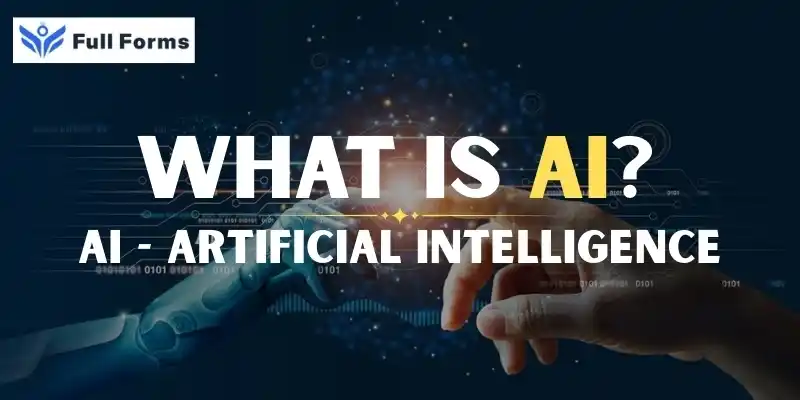Artificial Intelligence
(AI)

Description
Artificial Intelligence (AI) is a term that has quickly gone from being a fantasy in science fiction to being a part of our daily lives as technology changes quickly. AI was once thought of as a sci-fi fantasy, but it is now changing our lives, work, and the future in ways we are only beginning to understand.
What is artificial intelligence?
Artificial intelligence is the process of making computer systems that can do things that usually require human intelligence. Some of these tasks are learning, reasoning, solving problems, understanding natural language, recognising speech or images, and even making decisions. In simple terms, artificial intelligence (AI) lets machines "think" and "act" like people, but they do it faster, more accurately, and without getting tired.
AI is not just one technology; it is a group of related fields, such as robotics, computer vision, natural language processing, and machine learning. These technologies are making machines smarter and more flexible when used together.
There are three main groups that can be used to sort different kinds of AI:
Weak AI, also known as narrow AI, is designed for a specific task. It is the most common type of AI right now, but it only works in a limited area. Some examples are spam filters, voice assistants like Siri and Alexa, and software that can recognise faces.
In theory, general artificial intelligence (AGI) is an AI that can understand, learn, and use knowledge across a wide range of tasks, just like a person can. It is a major goal of AI research, even though it doesn't exist yet.
Super AI, or strong AI, is a future where machines are smarter than people in every way. At this level, AI would be able to think, feel, and be aware of itself. It is still not certain, and it makes people both curious and worried.
How AI Changes Our Lives
AI is now a part of almost every part of our lives, and we often don't even know it.
AI is helping doctors find diseases early, look at pictures, and even do very precise robotic surgery.
In finance, AI algorithms are used to buy and sell stocks, look for fraud, and keep track of investments.
Education: AI-powered learning platforms can give you virtual tutoring, automatically grade your work, and make learning more personal.
AI helps online stores suggest products, keep an eye on how customers act, and talk to customers through chatbots.
Transportation: AI is making smart traffic systems and self-driving cars safer and more useful.
AI Efficiency Benefits
- Machines can work all day and night without getting tired.
- Speed: Things that would take a person an hour can be done in seconds.
- Accuracy: AI makes it less likely that you'll mess up when you do math and analysis.
- Saving money: Once AI systems are built, they can do things for a lot less money than people can.
- AI can look at a lot of information and find facts and patterns that people might not be able to see.
Problems and Concerns
- Job Losses: Robots could do a lot of boring, easy jobs.
- Moral Questions: When an AI system makes a mistake, who is to blame?
- Control: As AI gets better, more and more people are worried that they won't be able to control smart machines.
The Future of AI
There is a lot of hope for the future of artificial intelligence. There is going to be AI that is easier to understand, where systems give answers and explain how they got there. Also, people and AI should work together, with machines helping people instead of taking their jobs.
Governments and businesses all over the world are making rules and guidelines to make sure that AI is developed and used in a responsible way. As we grow, our goal is to make AI safe, useful, and available to everyone.
Lastly, AI is more than just a cool word or a sci-fi idea. This powerful force is already changing our present and will continue to do so in the future. As we unlock more of its potential, the challenge is not only to make machines smarter, but also to make sure they get better, make the world a better place, and make it more human.
